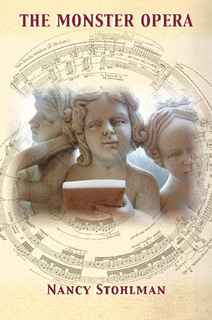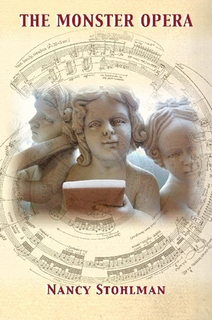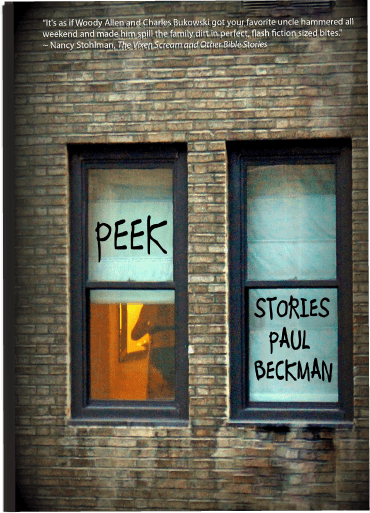‘The Monster Opera’ by Nancy Stohlman
-Reviewed by Ian Chung–
Following on their first flash novel, Matthew Ankeny’s The Rink, Bartleby Snopes Press is releasing a second title in the series, Nancy Stohlman’s The Monster Opera, ‘a flash novel in two acts’. Structurally, Stohlman’s work mixes operatic libretto and sheet music with production reviews, wrapped up within a self-reflexive narrative that centres on a forbidden story. Or as the writer character of Ursula Leonard announces in the ‘Overture’, regarding The Monster Opera, ‘I hate this story. I hate the Muse. […] Now it’s a bastard deformity. Not an opera, not a novel. I wish I’d never written the first word. I had no idea what kind of monster I was growing.’
The first act of this flash novel thus consists mainly of the interactions between Ursula and the opera singers that she has come to stay with, tenor Libretto Santiago and soprano Magdalena Santiago (née Basco), as Ursula is seduced into writing their story. Libretto demands Ursula’s loyalty in exchange for giving her the story, offering her a final chance to ‘leave this place, leave [his] bed, leave this house and find [her]self another’. Right after she agrees to pay the price, the narrative interrupts to warn Libretto:
This is the final moment before the story changes hands, the moment your ego has done you in. You’re too infatuated to think straight, you find the prospect of becoming a character romantic and appealing, you want to be immortalized in words, you want to feel that your story is worth taking. Later, when it’s too late, you’ll forget that you gave it willingly. I warned you.
The story in question is akin to a living organism, casting its pall on the Santiago household, or as Ursula writes, ‘The whole family suffered from sad sickness.’ It is literally transmitted from Libretto to Ursula through a bite, continuing to gestate inside her: ‘The Forbidden Story grew inside of me. My breasts were stretched and sore. […] The story was growing stronger; it was swelling, transforming.’ It gradually becomes clear that what is being transmitted is really a poisoned chalice, in that it confers preternatural talent on those it infects, since Libretto received it from his father and went on to become the world’s greatest tenor, but ‘he [also] felt the monster stir’ inside him. In the case of Ursula, she writes, ‘The monster lives in me, wants to escape, wants to take over my body and mind.’
The final piece of the puzzle slides into place at the end of the flash novel’s first act, with the appearance of The Traitor, who also demands the deadly gift from Libretto. It is quickly revealed that The Traitor is in fact Ursula’s husband, Hugo, seemingly written into existence in the role by the Forbidden Story’s manipulation of Ursula (‘It’s growing on its own now’). In its second act, The Monster Opera shifts into a more surreal mode, as the walls between fiction and reality begin to break down, and the Forbidden Story writes itself towards a gruesome end for all involved: ‘The poet writhes and expels the story she is not allowed to write […] rotted, bloated chunks of paper that leave a strong odor.’
What is most fascinating about Stohlman’s work is how freely it shifts back and forth between different artistic forms, the whole package compressed into the length of a short story. Given its usage of sheet music, it would have been interesting to see an e-book produced that incorporated performances of those songs, in a similar fashion to what happens in Superbard’s The Flood. However, while Stohlman herself has acknowledged the potential of The Monster Opera as a performance piece, having done a staged reading with composer Nick Busheff and a small cast, she also sees it first and foremost as a written work. In that respect, The Monster Opera is a bold attempt to carve out a space for the flash novel as a distinct category within the fiction landscape. In doing so, the work also raises questions about how art forms like opera can sustain an existence today, as well as the sacrifices demanded of those involved in the act of creating art.





Pingback: WWW.INFOWEBHUB.NET » Monster Jam Reviews